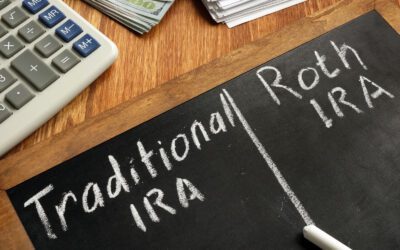How do you determine if an individual who is hired to do household work is considered a household employee or an independent contractor? Per the IRS guidelines, an individual who works around your home is considered a household employee if you can control the type of work they do and how they do it. This applies to babysitters, cooks, maids, nannies, caregivers, gardeners, etc. unless the worker is customarily engaged in an independently established trade or business.
Once you’re able to identify you have a household employee, the employee will need to fill out Forms W-4 and I-9 so the correct taxes can be deducted from their paychecks. Keep in mind a household employee can elect out of having income taxes withheld from their pay. These two forms do not need to be submitted to the IRS. They are kept for the employer’s records.
Determining what is owed in payroll taxes
Federal
The Social Security tax rate is 6.2% and Medicare tax rate is 1.45% for 2019 for both the employee and employer portion of taxes. The Social Security wage base limit for 2019 is $132,900; there is no wage base limit for Medicare tax. Social Security and Medicare taxes (referred to as FICA taxes) apply only to wages of household employees you pay $2,100 or more in 2019.
There are certain situations where wages are paid to a household worker that should not be counted for FICA wages, even if the wages are $2,100 or more:
• A spouse
• A child who is under the age of 21
• A parent (exceptions apply – see IRS Publication 926)
• An employee who is under the age of 18 at any time during the year (exceptions apply – see IRS Publication 926)
If you expect to pay your household employee wages of $2,100 or more in 2019, you should withhold the employee’s share of FICA taxes. However, if you prefer, you may pay the employee’s share yourself instead of having it withheld from the household employee’s pay.
If you’re not sure the household employee’s wages will be $2,100 or more in 2019, you can still withhold the employee’s share of the taxes. If, by the end of the year, the household employee wages are less than $2,100, you should reimburse them for their share of the FICA taxes but not report this reimbursement on the employee’s W-2.
Federal Unemployment Tax (FUTA) is also a payroll tax; however this is an employer obligation, not the household employee’s. The FUTA tax rate is 6% of each household employee’s gross wages up to the first $7,000.
State
For the purpose of this article we’ll be discussing New Jersey withholding and employment taxes. However, state withholding and employment taxes should be considered for all other states. Please contact your state agency to find out what your state withholding and employment tax obligations are for your household employee.
In the State of New Jersey, registration as a household employer with the Department of Revenue is required if you pay your household employee wages in excess of $1,000. Also, you are required to report newly hired or rehired employees within 20 days of their hire date.
State withholding is not required if there is no federal withholding obligation. However, if federal withholding is required or the household employee elects to have it withheld from their pay, New Jersey withholding is mandatory.
New Jersey employment taxes consist of unemployment, disability, and family leave insurance. The unemployment and disability are both household employee and employer taxes and the family leave insurance is only an employee tax. The employee tax rates for 2019 are as follows: unemployment and workforce.425%, disability .1700%, and family leave insurance .0800%. The employer rates are dependent on the experience rate tax table. The rate for first time employers is 3.3% in 2019 The wage base limit for this year is $34,400.
Year-End Filings
FICA and FUTA taxes are reported on Schedule H of the employer’s personal income tax return (1040) but they must be remitted through withholding or estimated tax payments made during the year.
Household employers may report state income tax and employment withholding on an annual basis by electronically filing form NJ-927-H, which is due on or before January 31st following the close of the calendar year.
Form WR-30, Employer Report of Wages, will need to be filed on an annual basis as well. These forms will also be electronically filed and are due on or before January 31st following the close of the calendar year.
Finally, you must provide each household employee a form W-2 and provide the Social Security Administration with copies of all W-2s and a W-3, which are due on or before January 31st following the close of the calendar year.
For New Jersey, form NJ-W-3M along with copies of W-2s must be remitted to the state and are due on or before February 28th following the close of the calendar year. For all other states, please contact your state agency to find out what your state filing requirements are.
Submitted by Beatrice R. Calen, E.A.
Photo by RawPixel on Pexels.com







